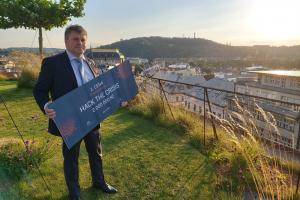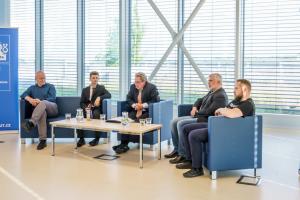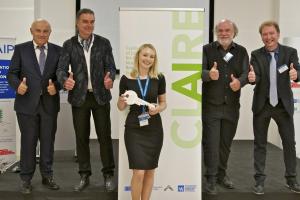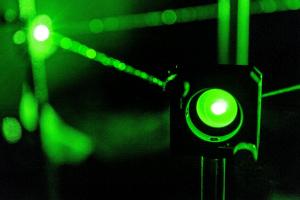Reports

2020/06/24
Yesterday evening, the final evening of the Hack the Crisis Czech Republic hackathon took place in the WeWork coworking space in Prague. With the participation of Prime Minister Andrej Babiš, Minister of Industry and Trade Karel Havlíček and Government Commissioner for IT Vladimír Dzurilla, the expert jury selected eight winning projects, which shared 10 million crowns donated to the competition by Hyundai. The winning project was DIANA Biotechnologies. In second place came the unique solution of pulmonary ventilation CoroVent, designed for the treatment of COVID19, by the team of prof. Karel Roubík from the Faculty of Biomedical Engineering of the Czech Technical University in cooperation with partners. The CoroVent ventilator is currently manufactured by MICo Medical.

2020/06/23
On 22 June 2020, a discussion meeting took place in the CTU-CIIRC building within the Global Science Café cycle organized by the Czech Centers entitled Research and Innovation in the Fight against COVID 19. The invitation was accepted by the Rector of the CTU doc. Vojtěch Petráček, student of the Faculty of Biomedical Engineering Šimon Walzel, member and coordinator of the team of engineers in the CoroVent project, David Miklas from the COVID Initiative and Pavel Burget from the Czech Institute of Informatics, Robotics and Cybernetics . The discussion was moderated by Petr Kaiser, special representative for scientific diplomacy of the Ministry of Foreign Affairs.

In June 2020, two years have passed, since the foundation of the organization that has been raised from the beginning on the community initiative of European scientists and institutions focused on artificial intelligence (AI) research. It currently brings together 375 research groups from 35 countries, with the support of more than 3,500 individuals, mainly leading artificial intelligence researchers, technologists and innovators. In the Czech Republic, CLAIRE has strong ties to the Czech Institute of Informatics, Robotics and Cybernetics of the Czech Technical University in Prague (CIIRC CTU), which also runs its Prague office.

Medical and IT students celebrate success with the Smart Triangle app, which helps sort patients in hospitals based on the seriousness of their condition. In addition to students of the medical faculties of Charles University, Tomáš Trejdl from the Faculty of Information Technology (FIT) of the Czech Technical University is in the team of four creators of the application.

As part of a project supported by the Technology Agency of the Czech Republic, a test jamming of the GNSS signal was performed at Václav Havel Prague Airport and an investigation into the impact on aircraft avionics. The event was organized by the Institute of Air Transport of the Faculty of Transportation Technology with the cooperation of the Czech Telecommunication Office and Smartwings air company.

The University Center for Energy Efficient Buildings of the Czech Technical University (UCEEB) participates in the development of a mathematical model that will be used in the field of fire safety of buildings and finding out the causes of fire as an alternative or upgrade of physical fire tests.

Dozens of Czech companies, with the support of the Ministry of Industry and Trade, merged, developed and began mass production of the RP95-M mask during the coronavirus pandemic. The respirator, which provides the highest level of protection, was designed at CIIRC CTU for 3D printing. Production data can be downloaded free of charge with a free license, so the mask is already available in more than thirty countries around the world. In physical form, this Czech protective device can now spread even further, as it now has European certification.

The development of electronics and computer technology encounters physical limits, when it is almost impossible to further reduce the size of individual elements and thus increase their efficiency and performance. Breaking these limits is promised by mastering quantum technologies. These intersect in many areas from quantum physics, through information and communication, nanomaterials and nanostructures, quantum photonics, optics and plasmonics, new laser generators, new materials with unique properties, to mathematical physics and modeling. The newly accredited doctoral study program Quantum Technologies at the Faculty of Nuclear Sciences and Physical Engineering of the Czech Technical University in Prague (FNSPE) is dedicated to this wide range.

Experts from the University Center for Energy Efficient Buildings of the Czech Technical University designed, manufactured and tested the first prototype of a combined solar collector for heating the water / air pair of heat transfer agents.

Although access to workplaces in connection with the COVID-19 epidemic was limited, the Faculty of Nuclear Sciences and Physical Engineering of the Czech Technical University in Prague had decided to present its scientific workplaces of interest to high school students, but also to other curious parties.